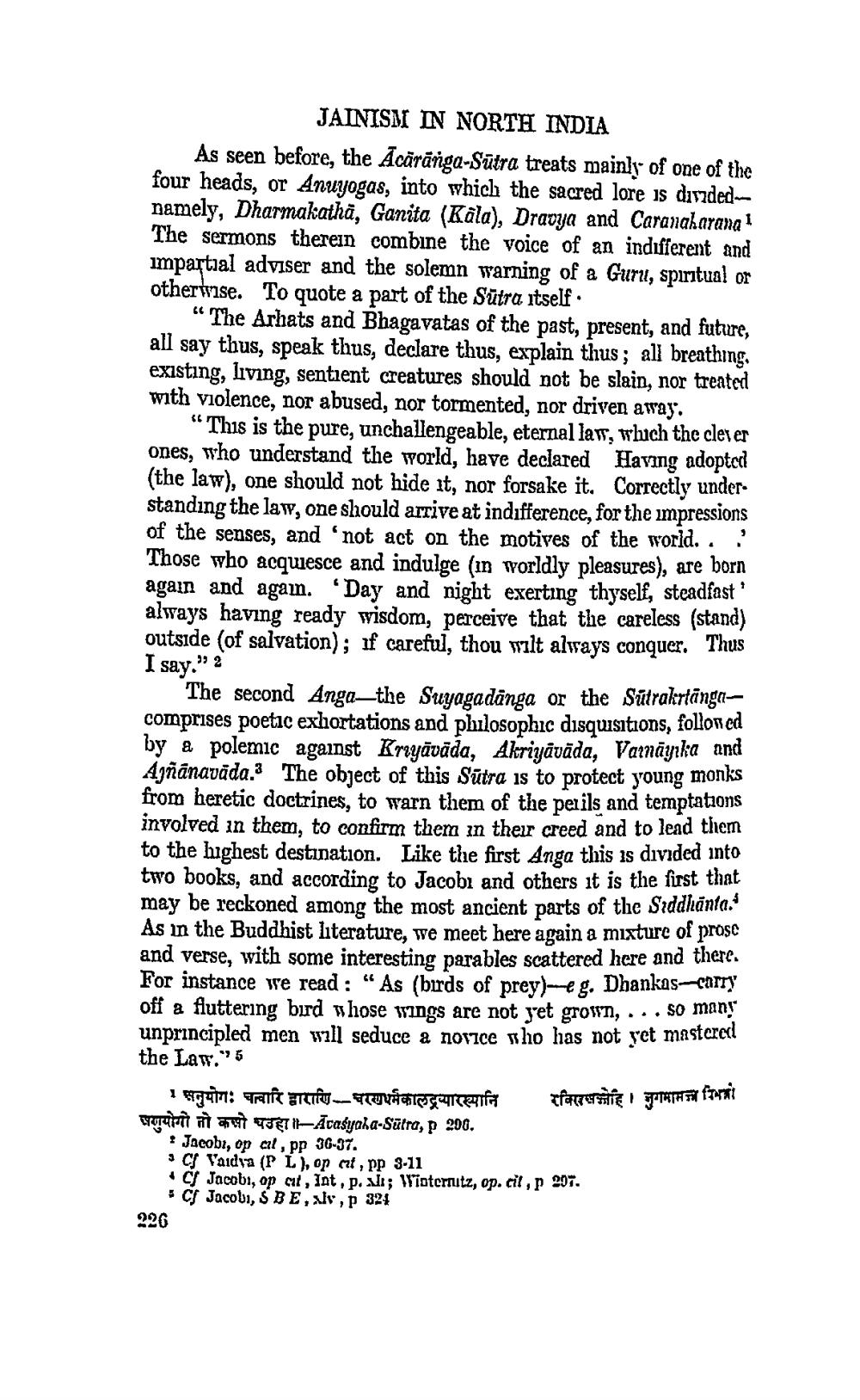________________ JAINISM IN NORTH INDIA As seen before, the Acaranga-Sutra treats mainly of one of the four heads, or Anuyogas, into which the sacred lore is dividednamely, Dharmakatha, Ganita (Kala), Dravya and Caranakarana1 The sermons therein combine the voice of an indifferent and impartial adviser and the solemn warning of a Guru, spintual or otherwise. To quote a part of the Sutra itself "The Arhats and Bhagavatas of the past, present, and future, all say thus, speak thus, declare thus, explain thus; all breathing. existing, living, sentient creatures should not be slain, nor treated with violence, nor abused, nor tormented, nor driven away. "This is the pure, unchallengeable, eternal law, which the clever ones, who understand the world, have declared Having adopted (the law), one should not hide it, nor forsake it. Correctly understanding the law, one should arrive at indifference, for the impressions of the senses, and not act on the motives of the world. . . Those who acquiesce and indulge (in worldly pleasures), are born again and again. "Day and night exerting thyself, steadfast always having ready wisdom, perceive that the careless (stand) outside (of salvation); if careful, thou wilt always conquer. Thus I say." 2 The second Anga--the Suyagadanga or the Sutrakertanga-- comprises poetic exhortations and philosophic disquisitions, follon ad by & polemic against Kriyavada, Akriyavada, Varnayika and Ajnanavada.The object of this Sutra is to protect young monks from heretic doctrines, to warn them of the perils and temptations involved in them, to confirm ther in their creed and to lead them to the highest destination. Like the first Anga this is divided into two books, and according to Jacobi and others it is the first that may be reckoned among the most ancient parts of the Siddhanta." As in the Buddhist literature, we meet here again a mixture of prosc and verse, with some interesting parables scattered here and there. For instance we read : "As (birds of prey)-eg. Dhankas---carry off a fluttering bird whose wings are not yet grown, ... so many unprincipled men will seduce a novice who has not yet masteret the Law"5 1 gam: PRITETITUTTUVATESSAYIf parcere! This WATT TTET I Acasyala-Satra, p 200. : Jacobi, op el, pp 36-37. * CJ Vaicha (PL), op at, pp 3.11 CJ Jacobi, op cit, int, p. xr; Winterrutz, op. cit, p 207. CJ Jacobi, SBE, ,p 324 226




